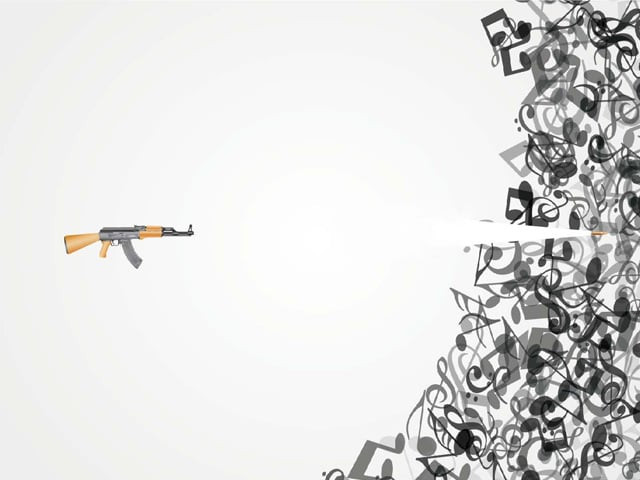Rising extremism, not terrorism, a greater threat to country, says report
Over 500 people were killed in more than 180 extremist incidents in 2011.

Rising extremism, not terrorism, a greater threat to country, says report
Religious extremism is a greater threat to the country than terrorism. This was the consensus at the launch of a report here on Thursday.
The report, titled “Extremism Watch: Mapping conflict trends in Pakistan 2010-2011” and prepared by Islamabad-based think tank Jinnah Institute (JI), records and examines the various extremist incidents that occurred over the past year, and the effects that these incidents have had on Pakistani society.
More than 180 extremist incidents killed over 500 people in Pakistan in 2011, which should be a wake-up call for policy makers who need to check the rising intolerance and extremist attitudes in the society, says the report.
“To eliminate extremism we need a certain measure of persuasion that our society does not seem ready for. Extremism cannot be eliminated by the force of a gun,” said senior journalist and columnist Fahad Hussain who moderated a panel discussion on the report at the launching ceremony.
He highlighted a chapter from the report that demonstrated political manoeuvring for the release of the banned Lashkar-e-Jhangvi’s Malik Ishaq. Ishaq is accused of over 100 sectarian killings and his organisation was found involved in attack on Sri Lankan cricket team, beside multiple other terrorist activities.
The report records and examines various types of extremist incidents and their effects on Pakistani society.
JI Executive Director Ejaz Haider said, “Extremism is a greater menace in terms of a state’s ability to deal with it, rather than terrorism, and this fact enhances the importance of studying extremism in Pakistan.”
“Everyone has an equal right to life whether they are from the Ahmadiya, Christian or Hindu communities in this country,” said Haider. “We will ultimately be killing each other if the current mindset is allowed to grow unchecked,” he added.
There were 62 incidents of attacks on shrines in Pakistan during the review period, according to the report. Sixty-two people were killed in these attacks. Another 454 people were killed in 44 sectarian attacks in 2011.
These do not include another 53 attacks related to interfaith violence and blasphemy, or attacks on schools.
Dr Moeed Pirzada, a PTV host, stated that the incidence of extremism shows that the social fabric of Pakistan is disturbed. He said that though the worst may be over, policy prescriptions to deal with extremism are still necessary. “Reconciliation with India would help our society heal.”
Published in The Express Tribune, February 17th, 2012.



















COMMENTS
Comments are moderated and generally will be posted if they are on-topic and not abusive.
For more information, please see our Comments FAQ